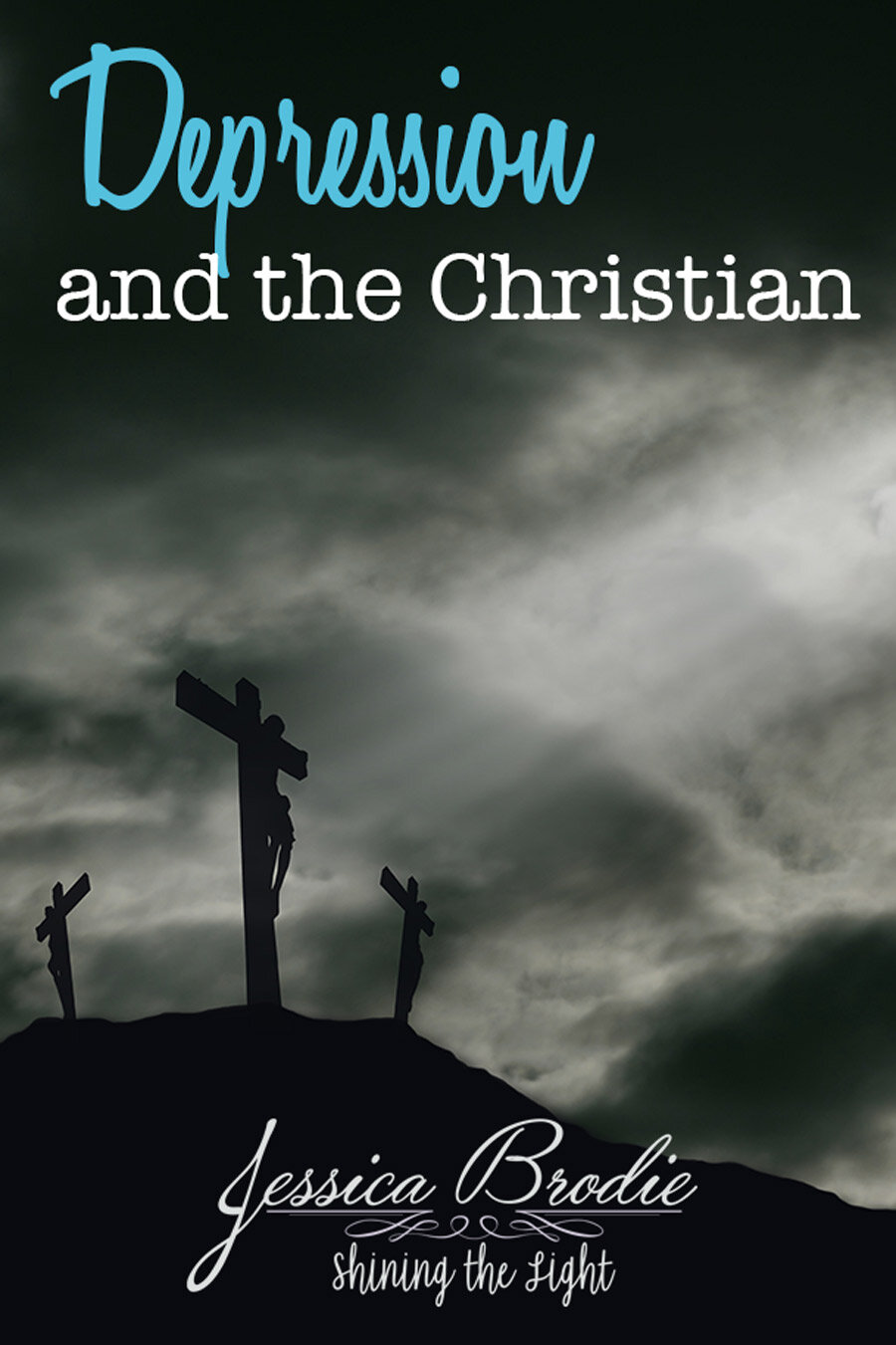Depression and the Christian
By Jessica Brodie
Depression—for some, it’s a catchall term used to describe feeling “low,” melancholy, grumpy, or sad. For others it’s a diagnosis they struggle to rise above day after day. A mood disorder with physical and mental effects, depression is different from standard feelings of sadness or grief. Many say it’s like a massive weight has been placed upon their chest, oppressive and unrelenting.
One in 15 adults experiences depression each year, according to the American Psychiatric Association, but it can be particularly confusing for Christians, who cannot seem to understand why they can struggle with something so debilitating yet stand firm in their faith.
Can you be depressed and be a Christian? Yes. Can you have the hope that is Christ and still feel generally hopeless, lethargic, and numb on a day-to-day basis? Yes!
I know some people believe depression is merely an emotional problem, one they can just “get over” if they pray hard enough, surround themselves with positive people, or change their perspective.
But depression is not only about emotions. It is a chemical imbalance that affects the brain and body alike.
There are many, many Christians who struggle with diagnosed, unrelenting depression. It doesn’t make them any less of a follower of Christ.
Both sides of my family have been impacted by depression. Many of my relatives have attempted to “fix” it with substance abuse, particularly alcohol. Others have sought relief in time alone or angry outbursts. For most of my relatives, antidepressants have been a big help. It’s important to understand that just because we put our hope and faith in God doesn’t mean our struggles will go away. Like cancer, diabetes, and other diseases, sometimes we’ll have it the rest of our earthly life. We wouldn’t deny insulin to someone with diabetes, or tell them if they pray hard enough it will go away—yet we often do that to people with depression.
If you or someone you love is among the many who struggle with depression, know you are not alone. There are a number of people in the Bible who experienced what appears to have been depression.
The psalms, many of which were written by King David during low periods in his life, are filled with depression. For example, in Psalm 143:4, David wrote, “So my spirit grows faint within me; my heart within me is dismayed” (NIV).
King Saul was so depressed he sank into fits of despair and rage (1 Samuel 16-20).
The entire book of Lamentations is a lyrical illustration of the Hebrews’ profound depression after the fall of Jerusalem.
Moses had a dark wilderness period several times in his life. At one point, he cried out to God, “I cannot carry all these people by myself; the burden is too heavy for me. If this is how you are going to treat me, please go ahead and kill me—if I have found favor in your eyes—and do not let me face my own ruin” (Numbers 11:14-15).
The prophet Jeremiah, too, struggled with depression throughout his days. “Why did I ever come out of the womb to see trouble and sorrow and to end my days in shame?” he cried to God in Jeremiah 20:18.
Job, despondent after he lost his children, his wealth, and his physical health, became so depressed that he declared he wished he’d never been born: “Why did I not perish at birth, and die as I came from the womb?” (Job 3:11).
The prophet Elijah, who plummeted into depression after he was forced to flee, begged God to take his life (1 Kings 19:4).
The prophet Jonah, too, became bitterly, angrily depressed after God chose to spare Nineveh (Jonah 4:1-11).
Judas Iscariot, anguished over the wrong he did in betraying Jesus, hanged himself (Matthew 27:3-5).
As with all problems we face, the Bible tells us what we should do: Bring it to God. Whether our problems are physical, emotional, or a mix of both, Jesus promises, “Come to me, all you who are weary and burdened, and I will give you rest. Take my yoke upon you and learn from me, for I am gentle and humble in heart, and you will find rest for your souls. For my yoke is easy and my burden is light” (Matthew 11:28-30).
Whether we struggle with cancer, diabetes, depression, or anxiety, our struggle is unique to us. Sometimes we can experience relief through medication; sometimes we cannot.
Whatever your circumstance, do know you are not alone. If you struggle with depression, it doesn’t mean you are not faithful enough or good enough or loved enough. You have much in common with others throughout history.
God never promises we will not experience difficulty. But when we do, we’re told, He is there beside us.
Alone, we might crumble and fall. Alone, we might perish.
But as the apostle Paul wrote to the early church in Philippi, “I know what it is to be in need, and I know what it is to have plenty. I have learned the secret of being content in any and every situation, whether well fed or hungry, whether living in plenty or in want. I can do all this through him who gives me strength” (Philippians 4:12-13).
Remember: You are loved. You are not alone.
Prefer video? Watch or listen on YouTube, here:


